Ever since the Russian opposition leader Alexei Navalny was arrested and imprisoned on trumped-up charges in January 2021, Navalny’s Anti-Corruption Foundation (FBK) has fought tirelessly to keep its leader in the public eye – and to continue his work exposing the corruption of the regime. Just under 130 million people viewed the FBK’s YouTube video ‘Putin’s Palace’, which detailed the outrageous luxury of a seaside palace built for Russia’s leader and the complex web of offshore schemes that financed it. The documentary Navalny – which details the opposition leader’s investigation into his own near-fatal poisoning by a team of FSB assassins in Tomsk in August 2020 – won the best documentary award at this year’s Oscars. ‘My husband is in prison for telling the truth,’ Navalny’s wife Yulia told the Academy Awards audience. ‘I dream of the day that he and Russia will be free.’
Was it a mistake for Navalny to return to Moscow from Berlin – where he was being treated for novichok poisoning – to face an imprisonment which has proved monstrously cruel? ‘You can [only] talk about mistakes if there had been any other options,’ says Leonid Volkov, Navalny’s chief of staff who, until his recent resignation, also served as FBK’s chairman. ‘But neither I nor anyone around [Navalny] ever thought there could be any other course of action. There was no discussion.’ Prison authorities recently announced that Navalny would be punished with a 12th spell in solitary confinement for ‘improperly greeting an officer’. Despite the tortuous conditions Navalny is in, Volkov insists he ‘remains as cheerful and well as one can under those circumstances… but our most serious worry is that in the process of trying to break him psychologically, the prison authorities, directed by the Kremlin, could undermine his health.’
Volkov, an IT specialist by training, served as a local councillor in the liberal enclave of Ekaterinburg in the Urals during a brief political thaw under Dmitry Medvedev, Vladimir Putin’s stand-in as president between 2008-12. It was a nationwide wave of protests in the winter of 2011-12 that followed Putin’s return to power for a third term that propelled Navalny and his FBK to international prominence – and established him in the eyes of the Kremlin as a major irritant, if not a serious challenger to Putin’s power. In 2013 Volkov ran Navalny’s campaign for mayor of Moscow (winning an official 27.2 per cent of the vote, which Volkov insists was really closer to 35 per cent), and in 2018 he was Navalny’s chief of staff for a presidential campaign which was scuppered when the Kremlin refused to register Navalny as a candidate.
With national politics closed to them, the Navalny team came up with the ‘smart voting initiative’, a system which allowed anti-Kremlin voters in local elections to focus their ballots only on opposition candidates likely to win. The system was so effective that it threatened to depose the Kremlin–backed United Russia party from power in several major Siberian cities – including Tomsk, where Navalny was campaigning when he was poisoned.
‘We have experience of campaigning in many ordinary suburbs in ordinary Russian towns and winning against United Russia, even with all their administrative resources,’ says Volkov, speaking from Vilnius, Lithuania. ‘I’ve no doubts that if we were allowed to compete fairly in real elections, Navalny is ready to fight and win.’ But while more than 20 million Russians regularly follow the FBK’s videos, there is still a major leap to winning a majority of the 73.6 million votes cast in the 2018 elections. And the elephant in the room is, of course, the war in Ukraine, which has seen a wholesale shutdown of Russia’s last remaining independent media and a deluge of patriotic propaganda that claims that Putin is protecting Russia from western attack.
‘The war and especially mobilisation destroyed the political contract between Putin and the majority of his people which allowed them not to be interested in politics in exchange for a decent living standard,’ says Volkov. ‘Now millions of people who for years were not interested became interested, began to ask questions and became more politically active.’
But in the aftermath of the war, up to a million of Navalny’s most passionate supporters – mainly from the urban middle classes – have fled the country to avoid political repression or conscription. ‘We have tens of millions [of supporters] who remain,’ counters Volkov, whose own family have lived in Europe since 2019.
If Navalny was right to return to Russia, were the FBK team and a million other opponents of the Kremlin wrong to leave? ‘I don’t believe I have the right to judge anyone’s decision, just to respect it,’ says Volkov. As for the FBK, ‘a decision was made to preserve our political apparatus outside Russia… we could not campaign from inside a jail cell’.
The FBK’s latest video turned its fire on two people whom most Russians see as liberal opposition members – the editor-in-chief of the Echo Moskvy radio station, Alexei Venediktov, and the socialite TV presenter (and Putin’s goddaughter) Ksenia Sobchak, who stood as a liberal candidate against Putin in the 2018 elections. Navalny’s team, using official open-source accounting information, revealed that tens of millions of dollars had been paid to Venediktov and to Sobchak by the Moscow mayor, Sergey Sobyanin, for the publication of special supplements in Venediktov’s magazine and for consulting services from Sobchak.
In a lacerating YouTube video, FBK claimed that these payments were in fact bribes from the state for election-fixing (Venediktov says that he actually lost money on the project and accused FBK of publishing only the income side of his accounts). Yet Venediktov’s radio station was closed by the authorities at the beginning of the war and in October he was declared a ‘foreign agent’ by the Kremlin. To many opposition-minded Russians, it looked like Navalny was turning on his own. ‘There is no sense in which those people are our own,’ protests Volkov. ‘The [Kremlin] system is rather complicated – collaborating with one part does not protect you from reprisal from another.’
Venediktov, a past master of political jujitsu, countered by publishing a 2022 letter signed by Volkov in the name of the FBK to Josep Borrell, the EU foreign affairs chief, in which he called for Brussels to relax sanctions on the London-based Russian businessmen Mikhail Fridman, Petr Aven, and two of their business partners. Volkov’s support was important, because many Russians have been placed on EU and US sanctions lists after being identified as regime insiders by Navalny’s FBK. Volkov resigned as chairman of the FBK and admits that the letter had been ‘a mistake’ – but refuses to comment on why he had written it in the first place. All he says is that ‘there are mistakes in the [EU and US’s] sanctions policy… the system is not transparent’.
Does Volkov think that the Kremlin is happy that its opponents have turned on each other? ‘Don’t use that term “each other”,’ he protests. ‘There is no political or personal closeness between us.’ This week, after the murder of military blogger Vladlen Tatarsky in a St Petersburg café, Russia’s Anti-Terrorism Committee accused ‘persons cooperating with Navalny’s FBK’ of being behind the killing, in cooperation with the Ukrainians. That is likely to herald a fresh wave of domestic repression against the FBK’s few remaining supporters in Russia. But while the main liberal opposition to Putin remains in jail, in exile, or squabbling among themselves, Volkov – and Navalny’s – dream of a Russia without Putin remains a distant prospect.
Got something to add? Join the discussion and comment below.
Get 10 issues for just $10
Subscribe to The Spectator Australia today for the next 10 magazine issues, plus full online access, for just $10.
You might disagree with half of it, but you’ll enjoy reading all of it. Try your first month for free, then just $2 a week for the remainder of your first year.

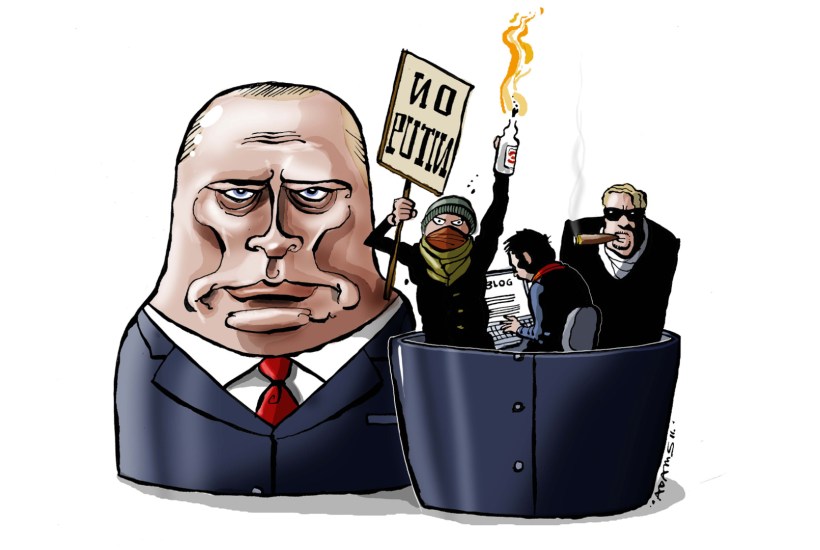
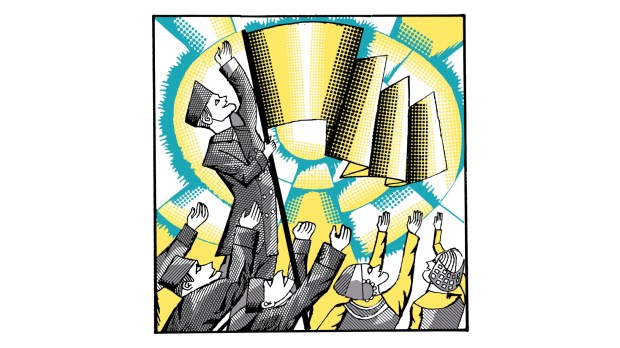
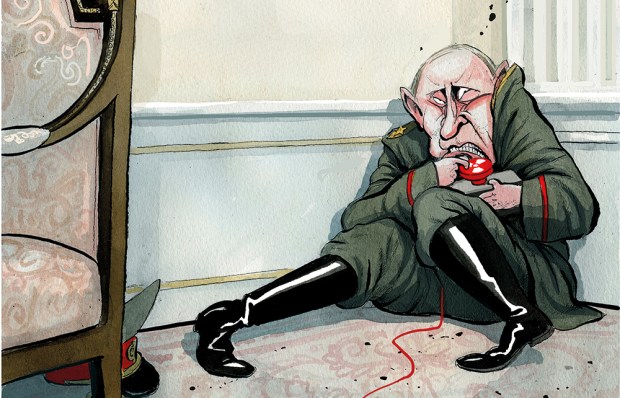
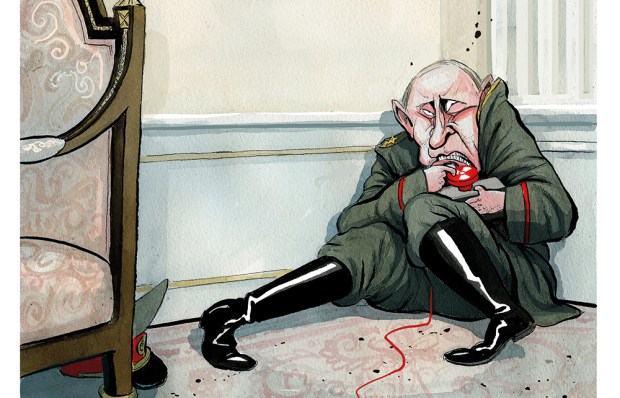
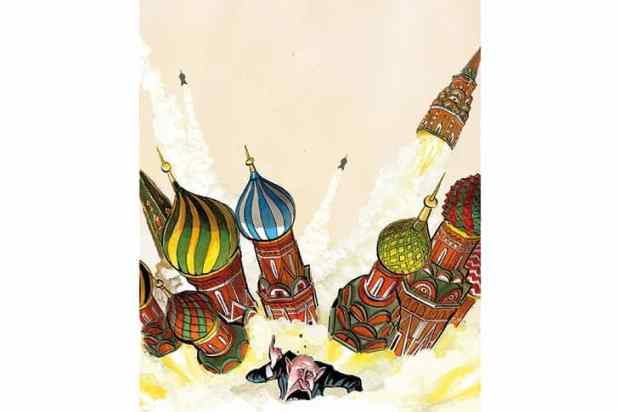
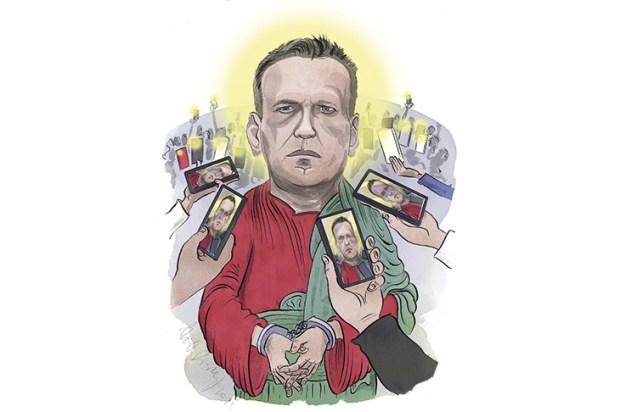







Comments
Don't miss out
Join the conversation with other Spectator Australia readers. Subscribe to leave a comment.
SUBSCRIBEAlready a subscriber? Log in